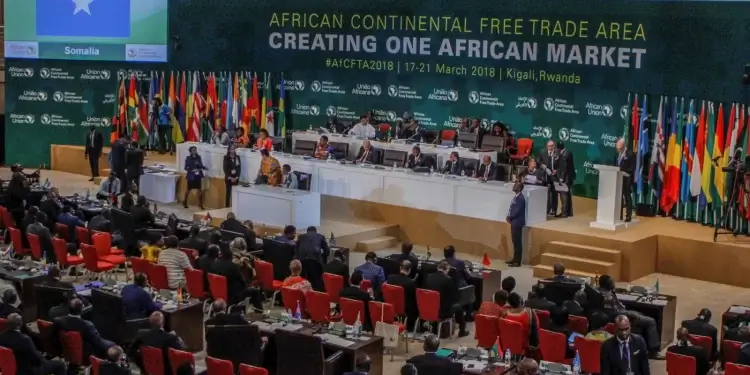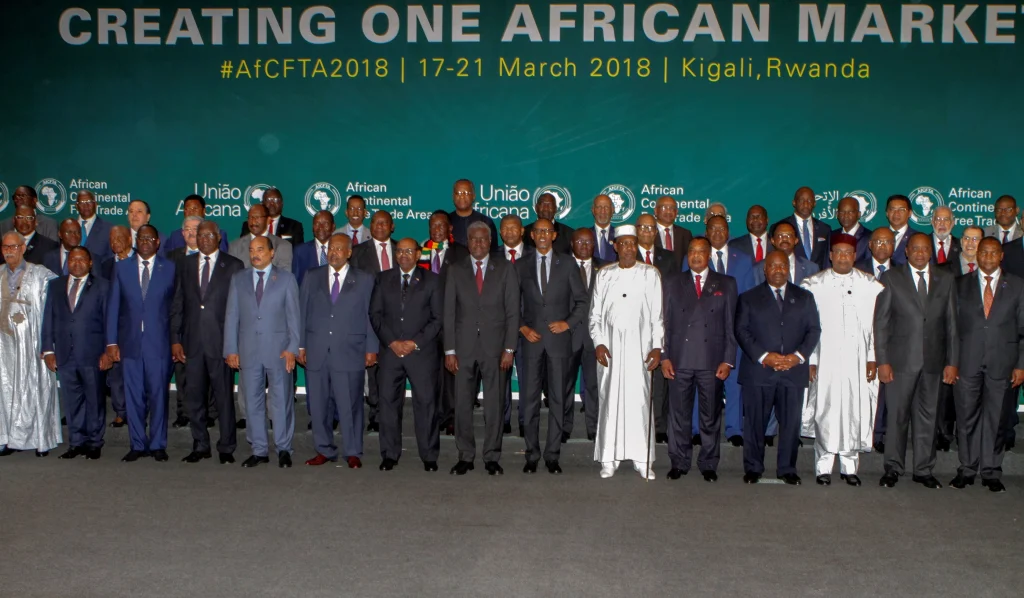
Our Projects are
Transforming African Trade
Quick Contacts
2nd Floor, Fidelity Insurance Centre Waiyaki Way, Westlands

So you wish to invest in Africa, with 51 countries to choose from, what factors are going to guide your decision? Once you have overcome that huddle, comes another matter to address and that is ‘how easy is it to do businesses between said African countries?’
The second part of the question is what we will focus on here, how easy is it to do business between and among various African countries.’ There already exist several trading blocs and free trade zones etc and finally the largest of them all the African Continental Free Trade Area (AfCFTA) has finally been passed and is in action.
So what does this mean for investors, for businesses seeking to trade between countries?
To address this question, the Economic Commission for Africa (ECA) has effectively developed a first of a kind method to measure how easy, or hard, it is to do business between/among African countries.
The tool has been christened the AfCFTA Country Business Index (ACBI) and was launched during the 54th session of the Economic Commission for Africa (ECA) Conference of Ministers in Dakar, Senegal in 2018 the tool focuses on African integration. This means that it measures ease of doing business for companies or entities that are first of all located on the continent and secondly, those that operate among several countries.
The developers say the Index looks and compares how easy it is for African countries to trade among each other. For example, how easy it is for a Cameroonian to set up business in Kenya and vice versa.
Needles to say this is a very coveted tool and a must have for any investor, foreign or local. So what is this tool and how does it work? Dubbed ‘The AfCFTA Country Business Index (ACBI)’ this set of check lists has three key components.
First it assesses what is referred to as ‘the perceived impact of the African Continental Free Trade Area on the private sector’s ability to trade and invest across African borders once the Area is operational.’
Explaining how the tool works, Stephen Karingi, Director of the Regional Integration and Trade Division of UNECA said, “…the measure focuses on the constraints and challenges faced by private businesses.
“It will help identify bottlenecks and address issues so that the African private sector can conduct business as seamlessly in their country of origin as anywhere else on the continent,” he said.
Describing it as ‘a measurement infrastructure’ UN Under-Secretary-General and Executive Secretary of the Economic Commission for Africa, Vera Songwe, said the ACBI will “…help assess the extent to which broader developments related to integration and trade are implemented.”
According to the sector expert, the ACBI will help users to better understand the “business sector’s perceptions of trading under free trade agreements already in force in African countries.”
However, it must be noted that the ACBI is not a measure of what a particular country is doing but rather a measure of how easy it is for someone in one country to set up a business in another country, Songwe explained.

Worth noting here is the fact that the Index is not like its predecessors, most of which were government led integration indices. The ACBI is entirely based on private-sector perceptions and ‘not on secondary data,’ which in turn makes the Index a true measure of the state of doing business across African borders.
Sector experts and government officials welcome this new tool but not without several recommendations. Experts would like to see the tool ‘measure or assess the status of rules and regulations that impact trade and what interventions can be made to improve trade performance.’
What is really been said here is for the tool to serve as a guide for policy change.
“My point is, the ACBI has provided outcomes of national consultations based on private sector perceptions. However, no concrete reasons for such perceptions are provided nor actions proposed to improve the perceptions,” Chief technical adviser on AfCFTA, Prudence Sebahizi, told media.
It is just as well since the AfCFTA Secretariat is conducting continent-wide trade policy reviews in hope to assess national policies that affect the implementation of AfCFTA. As such, the ACBI will be a vital component providing on ground information of actual state of doing cross border business and this will help the secretariat to better advice the respective countries.
The goals of forming the AfCFTA officially was to create a single, continent-wide market that will in turn help to enhance competitiveness at the enterprise level and grow business within countries and increase cross border trading.
Having tools like the ACBI is central to realizing this basic goal of the continent wide free trade zone. The AfCFTA will not bear the envisioned fruits if countries do not adjust policies to make it easier to trade across their borders.
The Index was launched four years ago back in 2018, at which point it was piloted in Cameroon and Zambia. After that initial testing, the ACBI was then tried through surveys across seven other African countries: Angola, Côte d’Ivoire, Gabon, Kenya, Namibia, Nigeria and South Africa.
Following this second round testing, a report was presented showing that there is still a major gender parity issue when it comes to cross border trading in Africa. The results showed that among other things, despite regional integrations and the launch of the AfCFTA, ‘cross-border trade is more challenging for female-owned firms.’
The Index designers went ahead and issued recommendations for policy change that would protect female business owners and level the playing field for them. It remains to be seen how much policy has been changed in the said four years.
After that second phase testing, the Index was again put through a third phase of trials this time in the DR Congo, Egypt, Morocco, Rwanda, Senegal and Tunisia. Results from this third phase testing are yet to be released.
Read original article
Disclaimer: The views and opinions expressed in this article are those of the authors and do not necessarily reflect the official policy or position of TradeMark Africa.